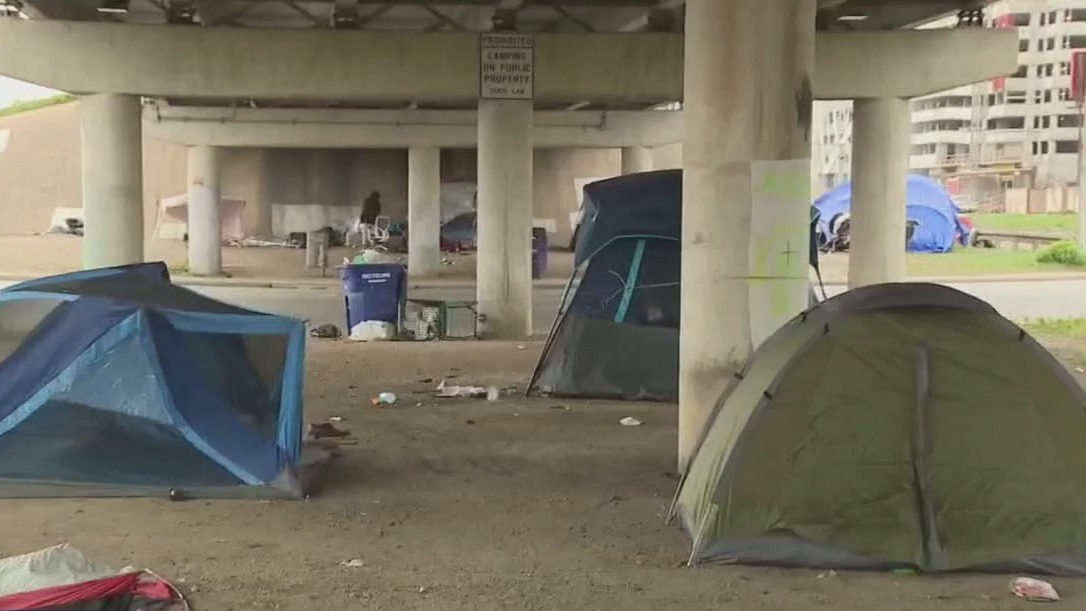Austin homeless outreach pilot program is personal and proactive: DAA

New HEART Austin pilot program data
A non-police-based response to non-emergency needs is part of the goal of a new homeless response pilot program in Austin. It seeks to build relationships, and provide more long-term solutions.
AUSTIN, Texas - Inside the Downtown Austin Alliance office, the community's vision for downtown, written and drawn on wooden blocks, serves as wallpaper. Stewarding that vision is the organization’s ongoing goal.
Most recently, DAA has partnered with Urban Alchemy, the California-based nonprofit that runs the ARCH and 8th St. shelter, to launch a pilot program addressing homelessness issues downtown.
The HEART, Homeless Engagement Assistance Response Team, program launched on February 1 and will last six months.
"It's our teams that are on the ground," said Kirkpatrick Tyler, chief of community and government affairs at Urban Alchemy.
RELATED: HEART Austin homeless outreach pilot program launches

Austin homeless strategy review on hold
The city of Austin's proposed review of its homeless strategy is on hold.
Those teams are taking a more proactive approach, engaging with those living on the streets, connecting them with resources and building relationships.
"So much of what we do and so much of our success is based on leveraging genuine, authentic relationships that are based on empathy," said Tyler.
The focus area includes part of Congress Ave. along with 5th, 6th and 7th streets between Congress and I-35.
Data from the first month of the pilot program was released on Thursday, March 21:
- Practitioner Team had 182 interactions with people experiencing homelessness in the service area
- 30% (54) were referred to the Oasis at 7th and Red River (part of 8th Street Shelter)
- 5 people accessed temporary shelter
- 5 referrals to healthcare services (medical, dental, behavioral/substance use)
- 7 provided Narcan
- 329 times – meals, snacks, water and hygiene supplies distributed

Austin homeless outreach program to launch
The Downtown Austin Alliance is launching a pilot program to help the homeless get off the streets.
"They have a way of relating to people without an emergency response and the time to do that in ways that, for example, the police department does not have the ability to do," said Bill Brice, senior vice president of investor relations at DAA. "They are actively on the street moving through that service area every day, five days a week, to try and engage folks and get in front of the business owner having to call for the service or make the 911 call."
Last month, FOX 7 spoke with the owner of a business located in the focus area that has had to make those calls due to vandalism and other issues.
"I do see that most of the people down here, they just need and want help," said Greg Autry, CEO of Sweet Sensi, in February. "But that's what we want too. We need help as business owners."
When we stopped by again on Thursday, Autry said he was still paying for a regular security guard.
"Our hope, just like everywhere else and like everything that we've been able to do in Austin, is that people will be able to see a noticeable difference, and will be able to tell a story through data," said Tyler. "And through that, it opens up the conversation to be able to expand these opportunities throughout the city."
The pilot program ends in July but could be adjusted or extended.

